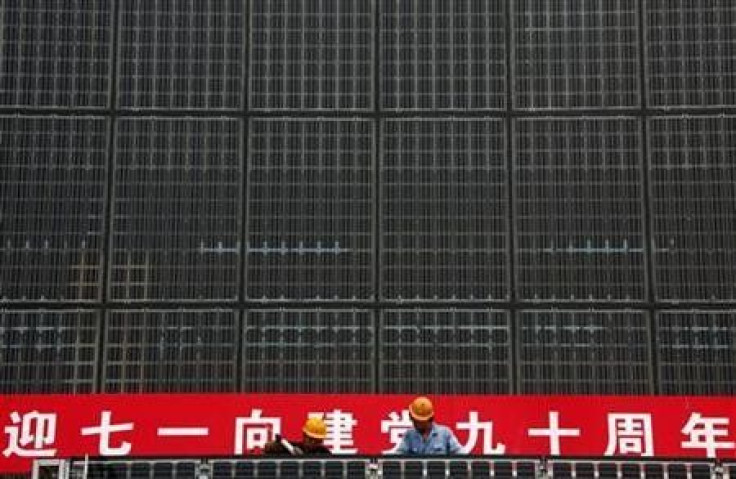U.S. Launches Dumping Probe into China Solar Panels

The Commerce Department said on Wednesday it would investigate whether Chinese companies sell solar panels in the United States at unfair discounts and receive illegal government subsidies.
The trade dispute, one of several sensitive economic and trade issues between the United States and China, could lead to steep duties on imports of Chinese panels and help struggling domestic manufacturers.
The action is opposed by companies in the U.S. solar industry that count on importing cheap panels to boost solar power generation.
It comes as the administration of President Barack Obama faces criticism from Republicans in Congress about domestic aid to solar and other renewable energy companies.
The Commerce Department said it accepted a petition from SolarWorld Industries Americas Inc. Last month, the company asked the government to slap duties on Chinese solar cells and modules.
SolarWorld is the U.S. arm of SolarWorld AG, one of Germany's largest solar product manufacturers, which shut down a California plant earlier this year due to a steep drop in solar panel prices.
The anti-competitive tactics of Chinese exporters have threatened to wipe out U.S. producers and jobs, said Gordon Brinser, president of the Oregon-based U.S. unit.
The impact of the case is already being felt. This week, China's largest solar power plant developer put on holds plans for a power project for California, New Jersey and Texas because of concerns that duties could make the plan too expensive.
The solar coalition also wants additional countervailing duties to offset Chinese government subsidies including tax breaks, cheap raw materials, discounted land, power and water, preferential loans and export insurance, and export assistance grants.
EVIDENCE OF INJURY
The International Trade Commission, which has the final say on whether any duties are imposed, will examine the issue and vote December 5 on whether there is enough evidence of injury to U.S. companies for the case to proceed.
The Commerce Department would then make its preliminary decisions on duties in January and March.
Imports of solar panels from China rose to $1.5 billion in 2010 from $640 million in 2009, the department said.
Another coalition of 25 U.S. solar companies opposes the trade case, saying it will threaten 100,000 jobs in the U.S. industry.
The Coalition for Affordable Solar Energy includes U.S. companies MEMC Electronic Materials Inc and Solar City as well as the U.S. arms of Chinese companies Suntech Power Holdings and Yingli Green Energy.
If they succeed, prices for solar will go up, demand for solar energy in the United States will go down, and the U.S. solar market will be significantly undermined, said Kevin Lapidus, senior vice president of legal and government affairs for MEMC's solar project development unit, SunEdison, on a conference call on Tuesday.
Also on Wednesday, the International Trade Commission gave final approval to anti-dumping and countervailing duties on millions of dollars of wood flooring from China in a case brought by domestic manufacturers last year
The panel voted 4-2 to approve duties in the low single digits for a number of Chinese producers and exporters and nearly 60 percent and higher for others.
The case involves easy-to-assemble wood floor planks like those sold at U.S. retailers Home Depot and Lowe's
© Copyright Thomson Reuters 2024. All rights reserved.











